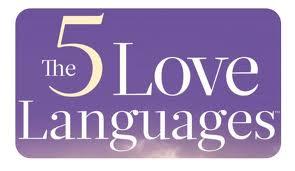5 Languages of Love; What's yours?

I've been thinking of writing this post for the longest but I didn't have the right introduction for it until last evening. I love music and despite the fact that I have thousands of different genres of songs on different portable storage devices, I enjoy the element of surprise provided by the radio. There's nothing like tuning in to your favorite FM dial only to find one of my favorite songs playing.....I don't know about you but to me, it's close to orgasmic!
Encouraging words: “Encourage” means “to inspire courage”. All of us have areas in which we feel insecure. We lack courage, which often hinders us from accomplishing the positive things that we would like to do. Perhaps you or your spouse has untapped potential in one or more areas of life. That potential may be awaiting encouraging words from you or from him.
Kind words - If we are to communicate love verbally, we must not only use kind words but also find the right tone to use. For instance, the statement “I love you”, when said with kindness and tenderness, can be a genuine expression of love.
Be Humble - Love makes requests, not demands. In marriage we are equal partners. If we are to develop an intimate relationship, we need to know each other’s desires. If we make our needs known in the form of a request, we’re giving guidance, not ultimatums.
Maintain eye contact when your spouse is talking.
Don’t do something else at the same time. Remember, this is your time together.
Listen for feelings and confirm them. Ask yourself, “What emotion is my spouse experiencing?”
Observe body language - keep in mind that communication is listening to what is not being said.
Refuse to interrupt because interruptions say, “I don’t care what you are saying; instead listen to me.”
Quality conversation also calls for self-revelation. In order for your partner to feel loved, you must reveal some of yourself, too.
Listen to hear and understand and not to reply.
Never use what your spouse says against him/her









David Ogweno
Fri, 18/01/2013 - 16:29
Permalink